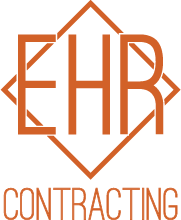What Financing Options Are Available for a Home Renovation?
Home renovations are a fantastic way to add value, comfort, and style to your living space—but let’s face it, they can also come with a hefty price tag. Whether you're planning a kitchen remodel, a basement transformation, or a full-scale addition, financing your project is one of the most important steps in the planning process.
At EHR Contracting, we know that a great renovation starts with a solid financial foundation. That’s why we’re breaking down the most popular home renovation financing options to help you choose what works best for your budget, goals, and timeline.
1. Home Equity Line of Credit (HELOC)
A HELOC is one of the most common ways homeowners finance renovations. It works like a credit card, giving you a revolving line of credit based on the equity you’ve built up in your home.
Pros:
Flexible borrowing—you only pay interest on what you use
Lower interest rates than most credit cards or personal loans
Great for ongoing or phased projects
Cons:
Your home is used as collateral
Variable interest rates can increase over time
Best for: Medium to large projects with evolving costs, like kitchen or multi-room remodels.
2. Home Equity Loan
Similar to a HELOC, a home equity loan also taps into your home’s equity but provides the funds as a lump sum with a fixed interest rate.
Pros:
Predictable monthly payments
Great for one-time, large-scale renovations
Fixed interest rate for the life of the loan
Cons:
Interest starts accruing immediately
Less flexible than a HELOC
Best for: One-time renovations with a clear budget, such as bathroom remodels or deck builds.
3. FHA 203(k) Loan
This government-backed loan allows you to refinance your mortgage and include renovation costs in the total loan amount. It’s ideal for buyers purchasing a fixer-upper or current homeowners planning significant upgrades.
Pros:
Low down payment (as low as 3.5%)
Ideal for extensive repairs or improvements
Backed by the Federal Housing Administration
Cons:
Requires more paperwork and approval steps
Must work with FHA-approved contractors and lenders
Best for: Major renovations and homebuyers wanting to roll improvements into their mortgage.
4. Personal Loans
A personal loan can be a fast and easy way to finance a renovation, especially if you have strong credit.
Pros:
No home equity required
Fixed terms and interest rates
Quick approval and funding
Cons:
Higher interest rates compared to home equity loans
Shorter repayment periods
Best for: Small to mid-sized projects like cosmetic updates or appliance upgrades.
5. Cash-Out Refinance
This option replaces your current mortgage with a new, larger loan and allows you to take the difference in cash to fund your renovation.
Pros:
Lower interest rates than most other loan types
Consolidates mortgage and renovation costs
Could result in tax-deductible interest (check with a tax advisor)
Cons:
Extends your mortgage term
Closing costs apply
Best for: Homeowners with significant equity looking for a lower interest rate on a large renovation.
6. Credit Cards
While not ideal for major projects, credit cards can be helpful for covering small upgrades or emergency fixes—especially if you use a card with promotional 0% APR.
Pros:
Instant access to funds
Good for small, short-term purchases
Rewards or cash-back options
Cons:
High interest rates if not paid off during promo period
Risk of accumulating debt quickly
Best for: Minor updates or bridging short-term budget gaps.
7. Contractor Financing
Some contractors, including EHR Contracting, can connect clients with third-party lenders who specialize in home improvement loans. This makes the process more convenient, and sometimes even offers promotional rates.
Pros:
Streamlined financing process
No need to deal with external lenders
May offer special terms for qualified borrowers
Cons:
Not all contractors offer this option
Terms and rates vary by lender
Best for: Homeowners who want a turnkey financing solution as part of their renovation package.
Final Thoughts: Plan Smart and Renovate Confidently
Home renovation financing isn’t one-size-fits-all. The best choice depends on your project scope, credit history, and how much equity you’ve built in your home. Taking time to understand your options will help ensure your renovation goes smoothly—and stays on budget.
At EHR Contracting, we believe in transparency and collaboration every step of the way. If you're considering a renovation but aren't sure how to fund it, let’s talk. We can help you explore your options, answer your questions, and connect you with trusted financing partners.
Ready to turn your dream home into a reality? Contact EHR Contracting today to schedule a consultation.

